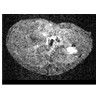

Emphasis
The emphasis is on the development of MRI hardware and methodologies, including image acquisition and reconstruction techniques, that would improve the speed, spatial resolution, information content, efficiency, robustness, quality, patient experience, and safety. The emphasis should be on technological development rather than detailed applications to specific diseases or organs.
The program covers the development of new MRI techniques, methods and tools broadly, which include but are not limited to:
- fast MRI
- high and ultra-high field MRI
- pulse sequence and image reconstruction
- MRI of new contrast mechanisms
- design and implementation of novel magnets, gradients, radio-frequency coils, and other apparatus for in-scanner applications
- combination of MRI with other modalities with an emphasis on MRI hardware development
- in vivo MR Spectroscopy and spectroscopic imaging
- MRI of tissue properties, structure, metabolism, function and physiology
Related News
The absence of signs of brain injuries does not rule out the possibility of an external adverse event causing the symptoms, said Carlo Pierpaoli, the lead author on the neuroimaging paper.
Source: Washington Post


